[coffee culture] do boutique coffee shops have to sell hand-brewed coffee?
Professional coffee knowledge exchange more coffee bean information please follow the coffee workshop (Wechat official account cafe_style)
Should hand-made coffee be a necessary option in modern boutique coffee shops? In the minds of many experienced coffee lovers, the answer to this question is yes. Even if there is no hand coffee, at least there must be a siphon pot, love pressure, or at least a smart cup, before guests will recognize your "boutique". It's even hard to understand how a coffee shop can promote its own "boutique coffee" if it only has espresso and its variants on its menu.
Um... At least this is the atmosphere in foreign countries. Because it is in line with the concepts of "expressing local characteristics" and "letting beans talk" in boutique coffee, the "antique" of hand-brewed coffee has been reignited by the tide of boutique coffee, and the two have always been in focus in the coffee industry. Even, if we turn around and look at the domestic coffee culture and the consumption of popular coffee, the problem may be a little more complicated.
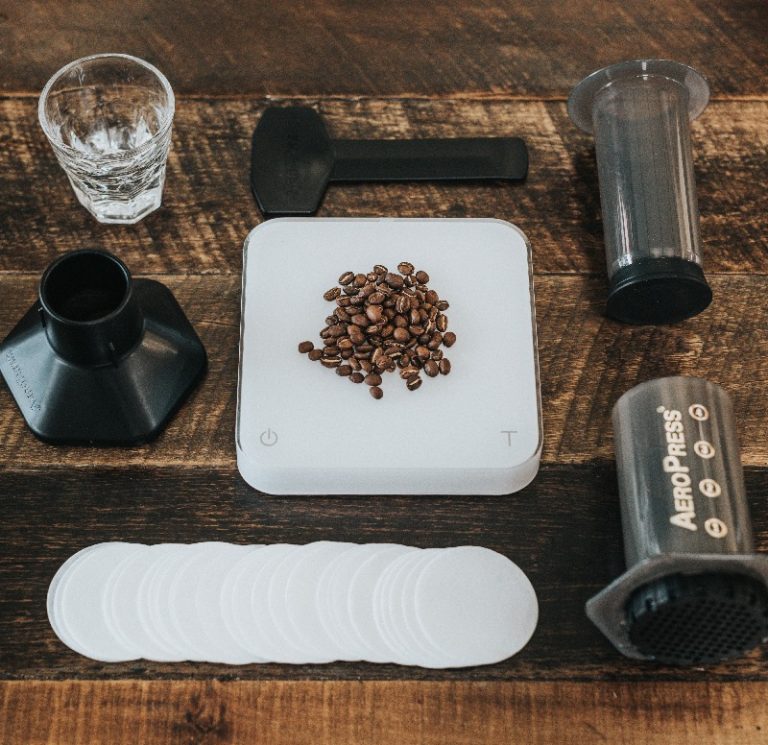
Advantages and disadvantages of selling hand-made coffee
In principle, as long as the store has items related to selling boutique coffee, the coffee shop can call itself a "boutique coffee shop". But as mentioned above, how can a boutique coffee shop without hand-brewed coffee reflect its own "boutique"? Apart from being able to better show the essence of boutique coffee, any craft of "manual" service can always be easily appreciated by consumers who "don't understand but think it's powerful." it seems that the word "handmade" can be naturally associated with labels such as "craftsman", "professional" and "boutique". As a result, hand-brewed coffee can easily give coffee shops an impression at a "professional" level.
But is hand-made coffee that easy to sell? Suppose a coffee shop is located in a crowded place with convenient transportation, and there will be about 10 guests waiting in line during the rush hour. All of a sudden, three guys asked for coffee, so they chose three different beans. The average production time of each cup of hand-brewed coffee is 4 minutes (boiling water → display apparatus → ground beans → steaming → water injection → product → cleaning). Can these orders really be handled? Perhaps for some coffee shops with several baristas and waiters, as long as the basic parameters and procedures for brewing hands are set in advance, skilled cooperation will not be in a hurry. But what if your human resources are not that abundant?
For most coffee shops, there are usually 1 or 2 full-time baristas on each shift. They can even make an espresso or latte in less than a minute, but switching to handmade coffee such as Chemex, V60 and Aeropress may be several times less efficient. If a guest needs to wait for more than 10 minutes, satisfaction will definitely plummet. Even if you don't mention satisfaction, you can sell 50 cups of espresso in an hour, but if you change to hand-brewed coffee, you can only sell a dozen cups. How do you set the price?
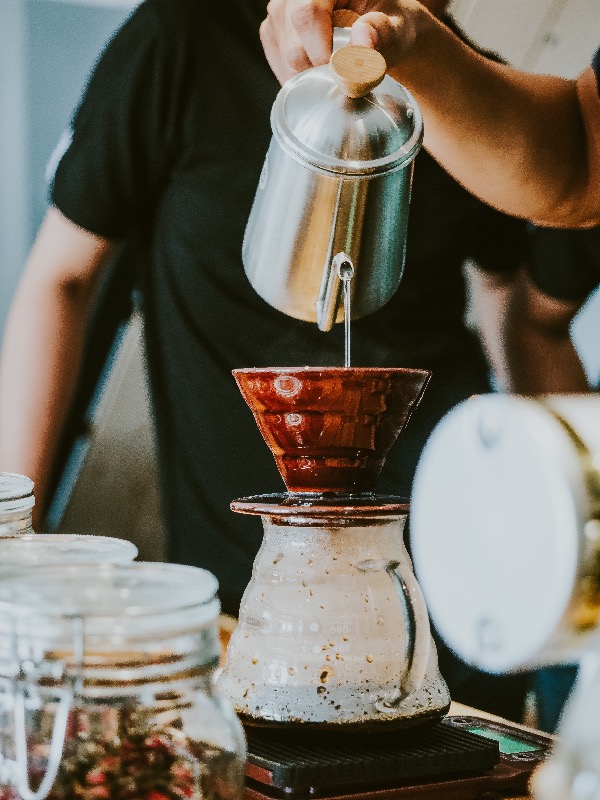
It's not that you don't want to sell it, it's not cost-effective. In fact, many coffee shops have adopted various "strategies", such as setting the hand-brewed coffee to the "hidden menu", indicating that the waiting time for the hand-brewing is more than 10 minutes, or clutching the chest and saying that the hand-brewing coffee cannot be made. There is nothing wrong with these practices. Considering the coffee consumption environment we live in, the "unpopular" brewing method of hand-brewed coffee, the order rate is really not high, if we have to deal with orders that account for less than 10% of the turnover, and adjust the work flow and staffing of the whole coffee shop, is very unreasonable. Therefore, if we consider the time cost of each hand-brewing scheme, it is normal for a cup of hand-brewed coffee to cost 1/3 to 50 yuan more than a latte.
An alternative to hand-brewed coffee
So is there no alternative to hand-brewed coffee in boutique coffee shops? Logically, the simplest solution for boutique coffee shops is to combine automatic brewing machines, such as Marco,Axiom,Behmor or the famous Moccamaster, to open up a range of possibilities. Not only can the parameters be pre-set and accurately reproduce the cooking effect, in some cases, these machines can also achieve a long-term heat preservation effect (80-85 ℃), thus allowing rapid production. In terms of current technology, most of the automatic brewing machines on the market can achieve a flavor performance that is very similar to that of hand-brewed coffee, or even more stable, but requires baristas to adjust the brewing parameters many times.
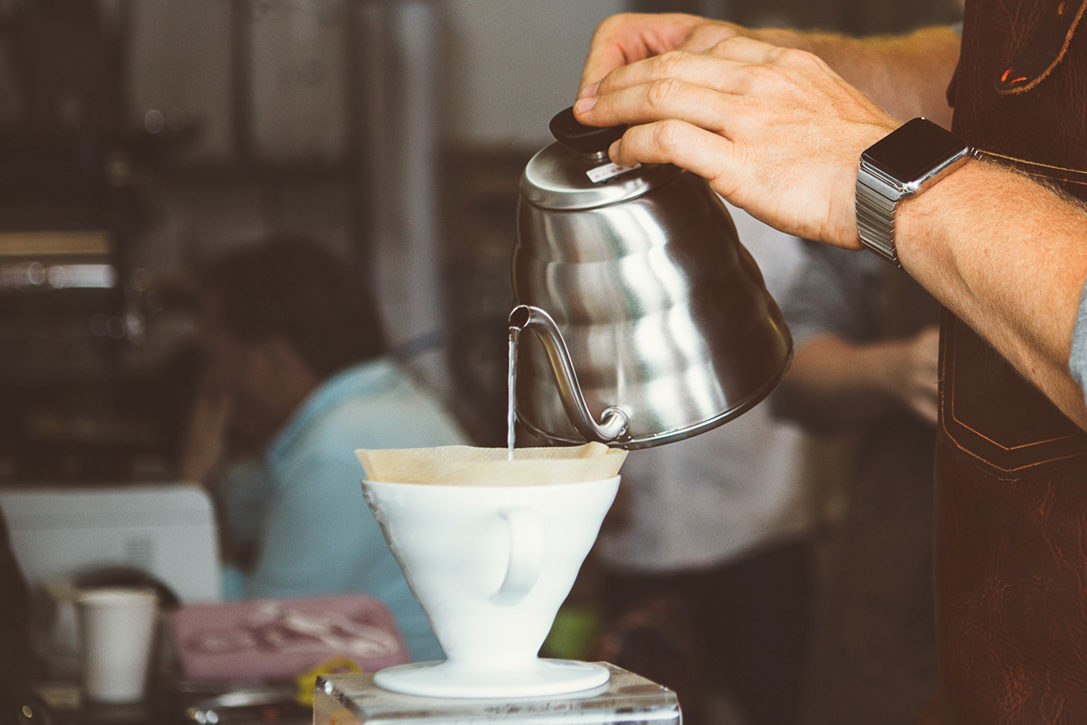
But this will not work for the time being. There are two reasons: consumer affordability and machine cost.
In terms of the current level of coffee consumption in China, even the acceptance of espresso is quite low, regardless of hand-brewed coffee and non-grinding automatic brewing machines. According to the latest survey data from Mintel, Chinese people like milk coffee more than other black coffee. When boutique coffee is named boutique coffee, it is destined to be a "niche" consumer product, even in the Nordic United States, which has a stronger coffee atmosphere.
Machine cost is another big problem. fast. Accurate, multi-functional... These are the advantages of automatic cooking machines. However, everything is afraid of buts. The concept of domestic boutique coffee has just sprung up, and it is still in an awkward situation of "hot in the industry and deserted outside the industry". Even in first-tier cities, not many coffee shops can easily share the cost of this automatic brewing machine. Even if you buy it back, I'm afraid it's a lot of collectibles. Because the prices of these cooking machines range from the cheapest 1500 + yuan to the most expensive 10,000 +, the average calculation will take more than a year to recover the cost, while if it is just an ordinary Aeropress or V60, the cost recovery time will only take as little as a week or two.
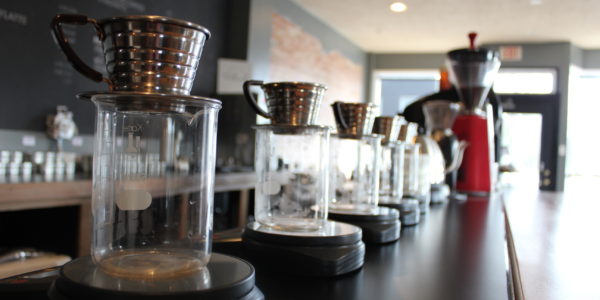
There are many other aspects to consider. For example, compared with hand-brewing coffee, machine brewing lacks the "hand-brewing" process, which happens to be the "premium" of hand-brewing coffee. Even many automatic machines can perfectly mimic the brewing mode of hand-brewed coffee, steaming, running out of water, and even more stable in circles. But some consumers will always feel that it is a "dead thing". They can only see the barista turn around and pour the coffee over, but they can't see the barista's ceremonial sense of "concentrating on brewing", and there is no sense of expectation of "just for me". There is no surprise feeling of "only this cup, unique" …...
The popularity of hand-brewed coffee is the key to promote the development of boutique coffee.
When it comes to hand-brewing coffee, the solution to the problem of whether or not to sell hand-brewed coffee in boutique coffee shops is not how to find a reasonably profitable alternative, but how to deepen the characteristics of boutique coffee and improve the consumption level of boutique coffee. In a country where instant coffee and deep-roasted coffee beans are still popular, even the basic knowledge of coffee has not yet been popularized, so it is too early to talk about the comparison between "hand brewing and machine brewing".
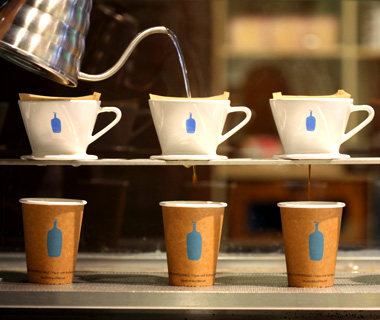
Fortunately, however, according to foreign experience, countries where "drip coffee" is most popular tend to accept "hand-brewed coffee" most easily, where consumers define coffee as a daily drink that can be consumed for a long time. Therefore, it is easier to transition from "drip coffee" to "hand-brewed coffee", and it is also easier to give birth to the sprout of fine coffee. Relatively speaking, in those countries that drink espresso for a long time (France, Italy, Spain, Portugal), the development of fine coffee has a long way to go.
Although there is no long history of drinking coffee, but there is no tradition of drinking espresso, China's boutique coffee industry may be able to develop more smoothly?
END
Important Notice :
前街咖啡 FrontStreet Coffee has moved to new addredd:
FrontStreet Coffee Address: 315,Donghua East Road,GuangZhou
Tel:020 38364473
- Prev
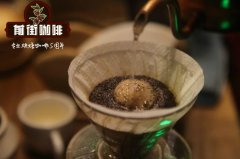
Introduction of Yunnan small Coffee Flavor characteristics of Yunnan washed Katim Coffee
- Next
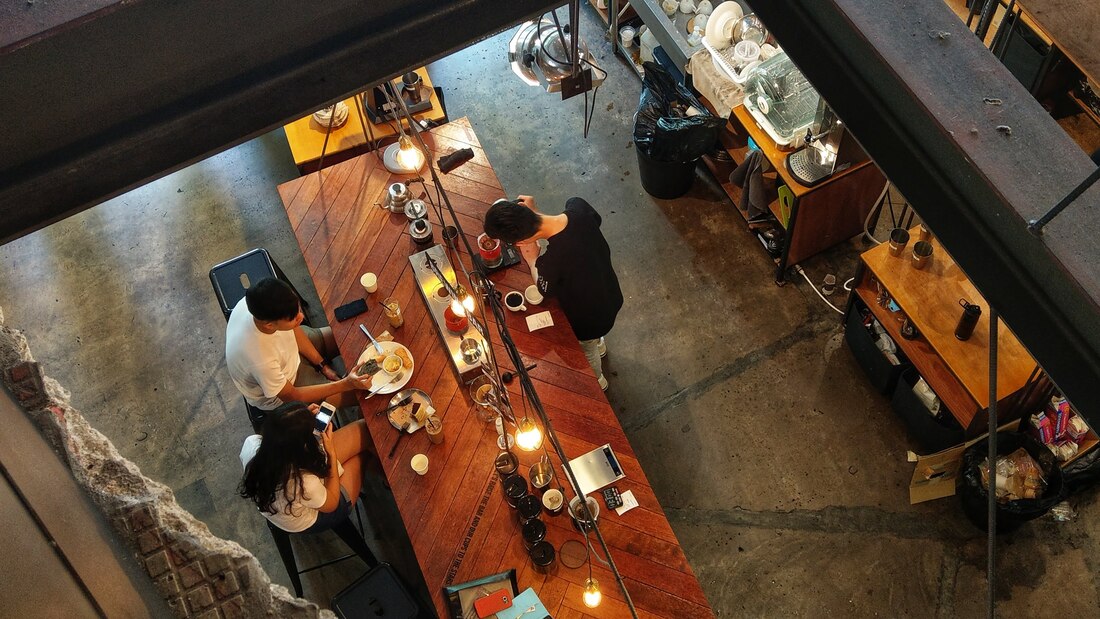
[discussion] Cafe has a variety of design styles. Which environment do you like best?
Professional coffee knowledge exchange more coffee bean information Please follow the coffee workshop (Wechat official account cafe_style) customers who go to the coffee shop to sit down. 50% of the customers come for the coffee shop environment, and only a few of the rest come for coffee / food. Especially in this day and age, the first consideration for opening a coffee shop is whether there is a corner suitable for taking pictures and putting them on social media.
Related
- What documents do you need to go through to open a coffee shop? coffee shop coffee shop certificate processing process
- How to purchase Coffee beans in small Cafe how to choose a suitable supplier for domestic Coffee supply Company
- How to drink Starbucks Fragrance White Coffee? how to make Australian White Coffee? what Italian coffee beans are recommended?
- The Story of Flora Coffee: the name of Flora Coffee Bean and the implication of the Flowers on Florna Coffee
- How much does a cup of coffee cost? How much is the profit of a cup of coffee? What is the profit of the coffee shop in a year?
- Yunnan small Coffee, known as "fragrant Coffee", introduces the characteristics of Alpine Arabica Coffee producing areas in Yunnan, China
- 2023 latest Starbucks full menu price list how much is a cup of Starbucks coffee what is better to drink the most popular hot and cold drinks recommended
- Starbucks different kinds of Coffee Price list Starbucks menu 2023 Top Ten Best drinks in Starbucks
- Starbucks Spring praise Comprehensive matching Coffee Bean theme Story Packaging implication and taste description
- The cost of a cup of coffee latte American coffee cost price and selling price

